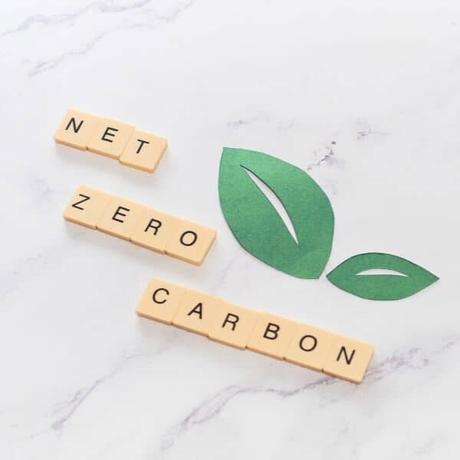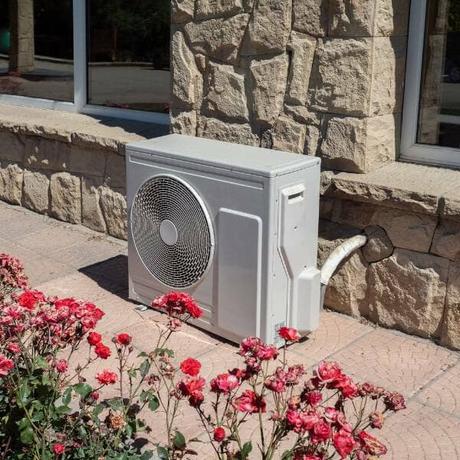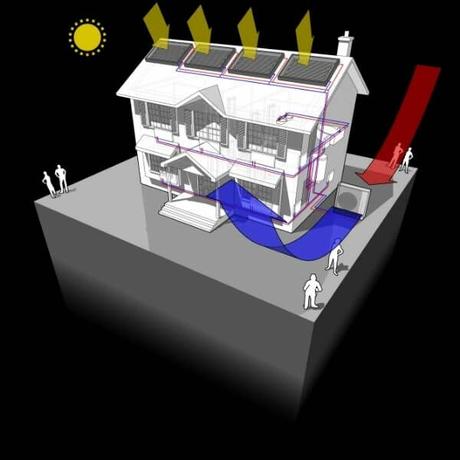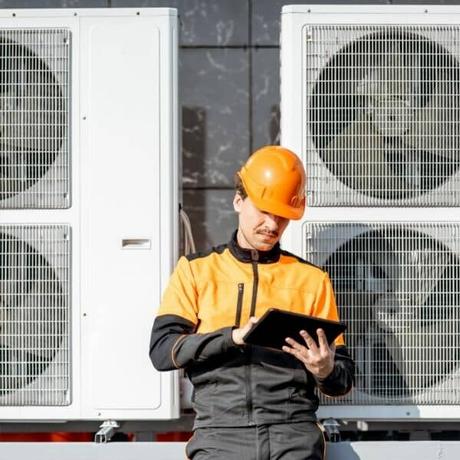One of the greatest challenges facing the UK if it is to reach its target of net zero carbon emissions by 2050 is the decarbonisation of our heating systems.
The fossil fuels used in our homes for heating, hot water, and cooking account for more than a fifth of the UK’s carbon emissions and are one of the greatest contributors to pollution in our everyday life. Currently 85% of homes use natural gas boilers so replacing them with a less carbon greedy way to heat our homes has become vital.
The government has drawn up a plan to address the decarbonisation of our heating systems. In November 2020, Boris Johnson, UK Prime Minister published a wide-ranging ten-point plan to help the UK go carbon Net Zero by 2050.

The plan established a target to install 600,000 heat pumps every year by 2028. In 2021 the government confirmed that natural gas boilers and all other forms of fossil fuel heating will no longer be permitted in any domestic new builds from 2025 as part of the Future Homes Standard. The decision was part of the government’s plan to tackle climate change and growing carbon emissions.
Heat pumps are a key low carbon heating system that will be essential in helping to decarbonise heat in our homes over the next decade. There are big carbon savings to be made if we change to low carbon renewable forms of heating, but we will need to ramp up the pace and scale of installations in order to meet the UK’s net zero targets.

Here are two different types of heat pump to consider when looking to upgrade or replace your current heating system:
Air Source Heat Pumps
The most popular type of air source heat pump (ASHP) in the UK is the air-to-water heat pump which absorbs heat from the outside air and feeds it into your wet central heating system. ASHPs work efficiently at a lower temperature which means that they are more suitable for water underfloor heating or larger radiators which give out heat at lower temperatures over longer periods of time. ASHPs can still extract heat when air temperatures are as low as -15°Celcius!
Ground Source Heat Pumps
A ground source heat pump system (GSHP) harnesses naturally occurring heat from deep underground by pumping water through it in pipes. Ground source heat pump systems consist of a ground loop (a network of water pipes buried underground) and a heat pump at ground level. The ground loop absorbs the naturally occurring heat stored in the ground, which is then compressed and goes through a heat exchanger, which extracts the heat and transfers it to the heat pump. The heat is then transferred to your home heating & hot water system. A ground source heat pump can increase the temperature from the ground to around 50°C.

Reasons why you should install a heat pump system in 2022:
- Lower operational costs: Often traditional heating systems are inefficient and poorly controlled. Heat pump systems that are correctly designed, well installed and well-operated will save you money in the long-term due to greater energy efficiency. Though ASHPs run on electricity they should use less electrical energy than the heat they produce. The efficiency of a heat pump is measured by their Coefficient of Performance (COP). The COP is the ratio of heat produced per unit of electricity consumed when pumping the heat. A COP value of 3 means that you get 3kWh of heat output for every 1kWh of electricity used to run the pump. The amount you save will depend on the type of fuel you currently use to heat your home with bigger savings against direct electric, LPG, oil and then gas. The costs associated with using gas are currently rising and likely to be much higher in the future as we switch over to renewable energy sources.
- Eligibility for the Boiler Upgrade Scheme (BUS): The UK government’s Boiler Upgrade Scheme will be launched on the 1st of April 2022. The BUS is replacing The Renewable Heat Incentive (RHI) which is set to close at the end of March 2022. The Boiler Upgrade Scheme aims to aid the decarbonisation of buildings. The scheme will provide upfront capital grants of up to £6,000 to support the installation of heat pumps, and in some cases biomass boilers, in homes and some non-domestic buildings. For more information about the BUS Scheme visit the Ofgem website.
- Maintains a comfortable environment: Heat pumps operate most efficiently when holding a steady temperature. You can however control which parts of your house are being heated by using a zoning system with smart controls. This allows you to have greater control over your Home Heating with a tablet or smartphone. Some heat pumps are fitted with weather compensation control systems to assist the heat source and help it to work at its optimum operation which can also help lower running costs for home heating.
- Less Carbon emissions: Heat pump systems will reduce your carbon emissions over time as they have an efficient conversion rate of energy to heat. An air source heat pump can operate at 300-400% efficiency and a ground source heat pump at 400-500% efficiency in terms of their use of electricity. At this efficiency level there will be significantly less carbon dioxide emissions than for a gas boiler heating system. If the electricity is provided by renewable energy, then carbon emissions can be reduced to zero. As a renewable technology, heat pumps can also help you obtain planning permission for your self-build home.
- Heat pumps can be paired with solar panels: Air source heat pumps are powered by electricity, so you can minimise your heating costs by running them off free solar energy generated from your solar panels. You can reduce your reliance on the grid supply of electricity and gas which will both save you money and reduce your carbon footprint.
- Durability: Heat pump systems can have a lifespan of up to 20 years for air source heat pumps and 25 years for ground source heat pumps with the right type of maintenance. Typically, the lifespan of a heat pump is twice that of a traditional boiler though ground source heat pumps will continue to be efficient for longer. Heat pumps are extremely reliable and a steady source of heat.
- Heat pumps are safer: Heat pumps are safer to own and operate compared to combustion-based heating systems as they rely on electricity and do not need to burn fuel to generate heat.
- Can provide cooling: Some heat pumps can be used for both heating and cooling. The process used by some heat pumps for heating can be reversed effectively making them an air conditioner. Air to air heat pumps which produce cooling are not classed as renewable technology and therefore can’t claim the Renewable Heat Incentive.
- Flexibility for heat distribution options: Space heating can be delivered through any mixture of underfloor heating and low temperature radiators.

There has never been a better time than now to invest in a heat pump. Not only can a heat pump save you money on your energy bills, but you can rest easy knowing that you are reducing your carbon footprint and helping the UK reach its net zero target of carbon emissions by 2050.
It is important however to make sure you do all the necessary research before buying the best heat pump for you and your home or your office. When you are choosing an installer make sure that you ask them for evidence of their MCS (Microgeneration Certification Scheme) certification. This will ensure that they’ve been fully trained to install your heat pump correctly and to give you the best possible advice.

